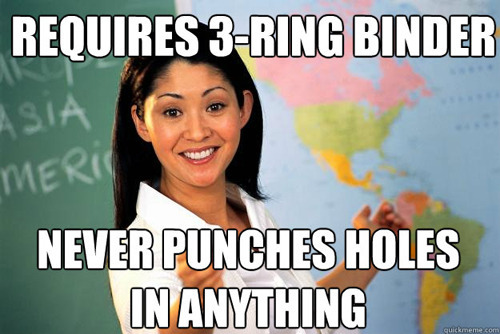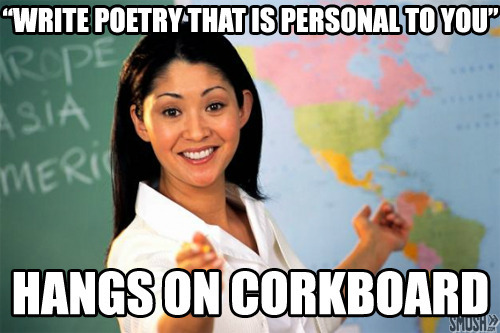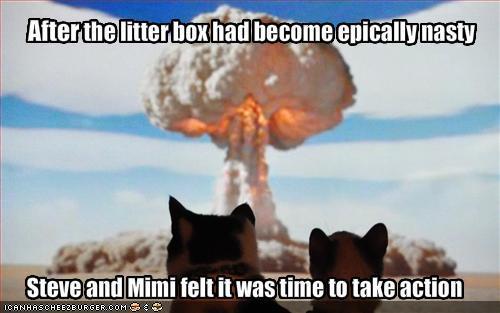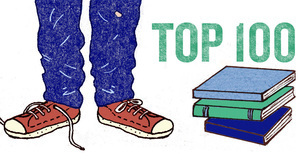Laurie Halse Anderson's Blog, page 11
August 19, 2012
The Money – WFMAD Day 19

So I promised that I would talk about money today.
Such a depressing topic.
It’s not that money is evil. In fact, it’s rather lovely, especially when your children are hungry, or they have outgrown their sneakers for the third time in a year or they want to live in something other than a tent, especially when it snows.
But money, as Mother was so very fond of pointing out, does not grow on trees.
So you get a real job to earn money. That takes about 40 hours a week. Plus commuting time. And if you have family, they take up an addition 100,000 hours a week. And then you have to make time for things like dentist appointments, getting the car inspected, taking the hamsters to the vet, etc.
And then you have to make time for writing. Right?
Many people (like me) feel that if they could just get their novel published, it would be the end to their money woes. So in addition to all the creative pressures they feel when writing, they add financial pressure. And then? And then? Some people shoulder even more burdens. They hope that the novel they’re writing will let them get a divorce, it will stop the bank from foreclosing, it will cure their smelly feet, it will make a lost love return to their arms.
Those kinds of expectations will destroy your writing and break your heart.
This post does a pretty good job explaining the math of publishing. It is rather dreary. If you prefer to focus on the success stories of J.K. Rowling and Stephenie Meyer, go ahead. I don’t blame you.
Looking at my experience and that of other writers I know who are making a living and paying the bills from writing, this is how you can get there.
1. Write a great book.
2. Get an agent to represent you.
3. The agent sells the book to a publisher.
4. You celebrate, but you don’t quit your day job.
5. Over the next decade, write and sell five more books.
6. And sneak in whatever kind of publicity you can in your free time so that…
7. All of your books earn out their advances and you have a steady royalty stream.
8. Calculate how you’re going to pay for health insurance.
9. Decide to keep the day job a while longer
10. After 15 years and 8 or 9 books, take a deep breath and quit the day job.
(Note: if your significant other has a great job, you obviously have more flexibility.)
Are you still with me? Still want to be a writer?
Now that you know the icky part, what questions do you have about the money and publication side of things?
Today’s quote
“The arts are not a way of making a living. They are a very human way of making life more bearable. Practicing an art, no matter how well or badly, is a way to make your soul grow, for heaven’s sake. Sing in the shower. Dance to the radio. Tell stories. Write a poem to a friend, even a lousy poem. Do it as well as you possibly can. You will get an enormous reward. You will have created something.”
Kurt Vonnegut
Today’s prompt: Write your success story, the People magazine version, about how your novel is going to put you in the ranks of J.K. Rowling and Stephenie Meyer. Be sure to include the wording of the note that you’re going to send me when you prove this blog post completely wrong!
Scribble… scribble… scribble…

August 18, 2012
Attitude Adjustment – WFMAD Day 18

This picture? Elephant playing in waterfall? This should be you writing.
No, that is not an unkind remark about the way you look in those pants. I am not implying that your life is that of a caged animal forced to entertain strangers and attend to all bodily functions in front of a crowd that throws peanuts.
I am pointing out that many writers get caught in the “tortured artist” mindset. And if you are a product of the American work ethic (i.e. you don’t feel like a good person unless you are working, nose to the grindstone eighty hours a week), then you are likely to slip into a frame of mind in which you regard writing as laborious, exhausting, work.
This is compounded by the neurotic tendencies many of us have about the quality of our work, and made even gloomier if you are hoping that what you are writing might one day pay the bills.
Sound familiar?
I’m not judging. I recognize this behavior because I fall into it all the time (as do my closest writer friends, who shall remain nameless because I love them).
The trick is to be aware when you stumble into the Bad Attitude Sewer Hole.
If the act of writing is not its own reward then why bother? Life is short, you’re going to die, the world is full of beauty and adventures. There are about a gazillion things that you could be doing with your writing time that would be fun and rewarding.
The next time you find yourself acting like a dramatic third-grader flinging herself on the couch, back of hand to her forehead, moaning about how hard it is to be a third grader and nobody understands and she hates doing it and she wishes third grade would just be finished magically and she needs a piece of chocolate cake now or she is going to faint…. stop.
Creating is fun. It’s a blast. Exercising our boundless imaginations feels magnificent. It changes our reality and strengthens us.
Yes, there is much about the publication process that is discouraging. (I’m going to talk about the whole Money Thing tomorrow.) Yes, it takes longer than you want to write a novel and it is confusing trying to keep all those pesky chapters straight.
But you are playing. It’s OK to enjoy writing. If you do, the chances you’ll make time for it everyday increase dramatically.
Today’s Quote
“Writing gives me such enormous pleasure, and I’m a much happier (and therefore nicer) person when I’m doing it. There’s a place in my head that I go to when I write and it’s so rich and unexpected – and scary sometimes – but never ever dull.”
Julie Myerson
Today’s Prompt: Think of the most duty-bound or boring person you know. (Or make one up.) Think of an incident that will snap that person out of her daily drudgery and recognize that there is more to life than working and having folded sheets in the linen closet. Write the scene that changes this character’s life.
Scribble… scribble… scribble…

August 17, 2012
Oprah and Me for Twenty Years – WFMAD Day 17

In 1992 I was a stay-at-home mom with a 5- and a 7-year-old. I worked part-time as a freelance journalist, writing for magazines and the Philadelphia Inquirer newspaper. And I watched a LOT of the The Oprah Winfrey Show. It had been a lifeline to sanity from the days when I had a newborn and a toddler who resisted toilet training. It gave me a sense of community. It reminded me to read. It nudged me along my spiritual path. I adored it.
My life as an author began on September 7, 1992. (I’ll post more about that red-letter day in a few weeks. Probably on September 7.) That was the day I put my youngest daughter on the bus to first grade. That was the day I committed myself to becoming an author.
I kept writing for the newspaper, but I began to tell people that I was trying to become a children’s author. Most people would look at me with the kind light of pity in their eyes and say, “But don’t you want to write a real book?”
(In their pointy heads, real = for grown-ups.)
I made every mistake a wanna be writer could make. I sent out first drafts. I wrote what I thought would be published instead of what was in my heart. I collected hundreds of well-deserved rejection letters, until finally, FINALLY, I got The First Phone Call from an editor saying that Henry Holt want to publish a picture book of mine. That book, Ndito Runs, came out in 1996.
Most people looked at me with the kind light of pity in their eyes and said, “That’s nice, but when are you going to write a real book?”
My mother-in-law, Anastasia, never did. She said, “I bet you’re going to be on the Oprah Show. She likes all kinds of books!”
In 1999, Speak was published and named as a National Book Award Finalist. That was also the year that Oprah Winfrey was awarded the National Book Foundation’s 50th Anniversary Gold Medal in recognition of her efforts to promote reading. I saw Oprah across the room at the cocktail party for the authors before the dinner. I was too chicken to do anything more than steal glances and admire her shoes. (She looked amazing.)
I knew that I’d never have a book featured on Oprah’s show, though I will admit I’d fantasize about it. I kept writing and writing and eventually I was getting more contracts than rejection letters. Anastasia’s faith in both Oprah and me never wavered, not even when I divorced her son. (One of the most peaceful divorces in the world, btw. That’s also a post for another day.)
Well, Anastasia, the day you told me would come is here.
Chains was chosen for Oprah’s 2012 Kids’ Reading List!!!
(Excuse me for a moment while I get up and dance wildly around the house again!!!)
There are many other wonderful books on the list, too, so be sure to check out all of them. Haven’t read Chains, yet? Then read this new review.
I lift my mug of tea and salute Anastasia and Oprah for two decades of encouragement and support! Thank you!
This extremely glamourous photo is of me and Anastasia the morning of my daughter Meredith’s wedding a few months ago.
Today’s Quote
“The biggest adventure you can ever take is to live the life of your dreams.”
Oprah Winfrey
Today’s Prompt: Write down this date: August 17, 2032. How old will you be? Next, jot down five of your writing dreams. Pick the most outrageous of those five dreams and write a paragraph or two – from the perspective of August 17, 2032 – and describe how that dream came to life. Then list the three things you can do TODAY to bring yourself one step closer to that dream.
If you haven’t talked to your mother-in-law recently, give her a call or send up a prayer to her today.
Scribble… scribble… scribble…

August 16, 2012
Lessons – WFMAD Day 16

(OMG, don’t you want to be the dog in this picture????)
Several of you wrote to me yesterday and said how inspirational you found Jackie Woodson’s quote. I thought you would really appreciate something she tweeted late in the day: “My book is falling apart. I should keep writing but grabbing a towel & heading down to the water. Maybe the answer will ebb in with the tide.”
Perfect, isn’t it?
Even more perfect than you might realize because I’d been struggling with that feeling for about five days until late on Tuesday when finally, FINALLY, the line that totally helped me understand abo-so-freaking-everything about a critical character in my novel showed up.
(I felt just like the dog in the pic above! I tweeted my reaction: “Sometimes, after plugging away at a story for months or years, the perfect line drops into your lap. That line is a gift.”)
What’s the lesson here, besides the observation that tired, desperate authors vent on Twitter?
Writing a novel is never pain-free. In fact, I’d venture to say that most, if not nearly all, of the time you are writing a novel, you’re going to feel like crap. You have to find a way to simultaneously a) feel like a stupid, arrogant idiot who can’t write anything that is good enough to put on the bottom of a bird cage and b) believe in your dream and your talent and your vision of the story.
The secret is perserverance.
You muddle through the muck and keeping revising and eventually the story becomes less crappy. Marginally so, but you take strength from any source, right? As Jackie pointed out in yesterday’s quote, most people get to that awful hellhole, that spot where they have lots of pages filled with tangled plot lines and confusing characters and they become overwhelmed by the crappiness of it all so they bury the manuscript – and the dream – in a box, and tell their friends that really, they always wanted to learn how to play the glockenspiel much more than they wanted to publish their book.
I’m not judging here. To count the number of times I wanted to do that, multiply 365 days by twenty years. Seriously.
I think the reason I wound up with a career as an author is that I have a vivid imagination and I am epically stubborn. Every time I wanted to quit, the part of me that punched the boy from across the street when he teased my little sister rises to the surface. I. Don’t. Back. Down. Not from bullies, not from stupendously dreadful drafts, not from nothin’.
Make peace with the fact that you are uncomfortable with the quality of your work for most of the writing process. Take the energy you used to waste being afraid that your writing sucked, and apply it to making your writing sing.
Today’s Quote
“The unreal is more powerful than the real. Because nothing is as perfect as you can imagine it. Because its only intangible ideas, concepts, beliefs, fantasies that last. Stone crumbles. Wood rots. People, well, they die. But things as fragile as a thought, a dream, a legend, they can go on and on. If you can change the way people think. The way they see themselves. The way they see the world. You can change the way people live their lives. That’s the only lasting thing you can create.”
Chuck Palahniuk
Today’s Prompt: As fast as you can, write a list of all the things you have learned in your life. Do NOT be philosophical or abstract. “You can’t change other people” won’t cut it for this exercise. “Don’t eat spinach at a business lunch because it’s hard to tell if it’s stuck in your teeth” does.
Bonus: Write a story about you or a character learning one of these lessons, or doing the opposite of the piece of advice.
Scribble… scribble… scribble…

August 15, 2012
Your Turn! WFMAD Day 15

We are half-way through the challenge. It’s been interesting to see which kinds of posts generate the most feedback. In order to tailor the rest of the month to your needs, I need you to respond to these two questions:
WHAT KIND OF “LIFE OF A WRITER” TOPICS TO YOU WANT ME TO DISCUSS?
WHAT KIND OF WRITING CRAFT ISSUES DO YOU WANT ME TO TACKLE?
Today’s Quote
“You’re writing, you’re coasting, and you’re thinking, ‘This is the best thing I’ve ever written, and it’s coming so easily, and these characters are so great.’ You put it aside for whatever reason, and you open it up a week later and the characters have turned to cardboard and the book has completely fallen apart. That’s the moment of truth for every writer: Can I go on from here and make this book into something? I think it separates the writers from the nonwriters. And I think it’s the reason a lot of people have that unfinished manuscript around the house, that albatross.”
Jacqueline Woodson
Today’s Prompt: Whose diary (of the people you know) would you like to read? (For the purposes of this prompt, you obviously have to pretend that everyone you know writes in a secret diary every day.)
After you have chosen your person, write a diary entry from her/his POV about an event that you were at. The trick here is to take information that you already have (about the event itself) but filter it through the perception of someone else.)
Scribble… scribble… scribble…

August 14, 2012
How High School Ghosts Can Feed Characters – WFMAD Day 14

Thanks to everyone who participated in the discussion about the NPR’s Top 100 YA List. The good thing about lists and awards is that they tend to provoke conversation – sometimes debate – and in that way the titles of many more books are shared. And that’s a good thing.
But I really hope NPR follows up with some good journalism about YA and children’s literature by people of color as part of their attempt to report about and for a larger audience. Let’s keep bugging them about that, shall we?
Question 5: How do you begin a story when you have numerous ideas circling around in your brain?
Answer 5: It does not matter. JUST START. Write them all down, every single one. Scribble down the ideas on a sidewalk with chalk. Then take a photo before it rains. Or open a doc on your computer or grab a pen and a piece of paper. It does not matter. JUST START. The ideas don’t have to be in order. They do not have to be complete sentences. You’ll probably find that as you scribble, they will grow, mutate, and give birth to new ideas. This is good!!!
When you have captured all the ideas buzzing around in your brain, take a day or so away from them. Let them cool down. Come to my house and help me weed my gardens while you’re waiting. Then go back and read them. Circle the ones that make your heart beat faster. Those are the ideas that you should be pursuing right now.
Today’s Quote
“Never be afraid to sit awhile and think.”
Lorraine Hansberry
Today’s Prompt: I want you to think about someone that you went to high school with. It should be someone you’d say “hi” to in the halls, but not the person with whom you shared your darkest secrets. Or any body parts.
Write about what that person might be like today. Construct a family or a lack of family. A job. A house, or maybe she’s living under a bridge. Start with your memories of that person (which will be shaded by how you felt about them), but let your imagination fill in the blanks.
Hint: Try to make your details as specific as possible. That she likes coffee is not specific enough. Precisely how does she take her coffee? Where does she buy it? Who does she drink it with? In what kind of cup or mug?
Scribble… scribble… scribble…

August 13, 2012
Kitty Litter & Turds in Dialog – WFMAD Day 13

Question 3: Any plans to write the final book to Chains – Forged series?
Answer 3: Yes, yes, a thousand times yes! As soon as this YA is done, I will dive into the final book of the trilogy, called ASHES. I can’t wait.
Question 4: You’ve never seen or met your characters, I assume: what techniques do you use to construct dialogue? How do you translate REALNESS into what they say?
Answer 4: I hear dialog in my head. It is often where my stories start; I’ll be out running or driving and I’ll hear the main character talking. Even though dialog comes easily to me, I find that I revise it countless times. In early drafts I’m often unaware of the nuances of the relationships between characters. As the book comes together, I might realize that a short line of conversation in chapter three sets up the Enormous Plot Twist in chapter 37. Also, my early drafts of dialog always, always, always, contain kitty litter.
“Kitty litter?” you ask, with a polite, nervous smile.
Indeed. Kitty litter. And occasionally turds.
Kitty litter is the stupid fillers that like to gum up a sentence so that the important words get lost. People speak in short, often broken sentences. If your dialog reads like narrative instead of sounding like it could be spoken by living human beings, look for the kitty litter. Cut mercilessly to bring dialog to life.
The turds are clunky bits of backstory that stink up perfectly good dialog. “As you remember from our childhood days at the lake, Jethro, I never learned to swim.” I wind up with dialog turds all the time in early drafts, largely because I need to remind myself of backstory elements. You must go through and remove these horrors when you are revising!
Today’s Quote
“[I start with an emphasis on] character, definitely. And by character I mean a person drawn full-round, not a caricature. E. M. Forster refers to “flat” and “round” characters. I try to make all of mine round. It takes an extrovert like Dickens to make flat characters come alive. But story as such has been neglected by today’s introverted writers. Story and character should grow together; I think I’m lucky so far in that in practically everything I’ve tried to write these two elements have grown together. They must, to give an impression of life being lived, just because each man’s life is a story, if you’ll pardon the cliché.”
William Styron
Today’s Prompt: Eavesdrop in a public place and jot down the bits of conversation that you hear around you. Cafeterias and food courts are good for this. The New York subway is an exceptionally rich spot. The point is not to steal something for your story, or to be arrested. It’s to get you to hear the rhythms of real speech and get a sense for what they look like on the page.
If you have a work in progress, ask a friend to read and record several of the dialog passages for you. Play back the recording and mark what sounds natural and what sounds clunky. Toss out both the turds and kitty litter and start fresh.
Scribble… scribble… scribble…

August 12, 2012
Happy & Sad about the NPR Top 100 YA List

This was a pleasant middle-of-summer surprise! NPR asked listeners to vote for their favorite YA novels of all times, and both SPEAK and WINTERGIRLS made the cut. (SPEAK was #26 and WINTERGIRLS was #99. Given that they only chose the top 100, that one was a little close!)
As lovely an honor as this is, it also made me sad. And angry and frustrated. This just might be the whitest YA list ever. And that is saying something, given that children’s literature is far from diverse. A Minnesota teacher blogged about the issues this raises for all readers. Please take the time to read her post – it is important.
If you are going to browse the NPR list, please also browse through the lists that are linked to over at Reading In Color. Pull all of these lists together and then you’ll have a robust resource for YA readers.
This list was announced almost a week ago and it has taken me this long to process what the honor means to me and what the unbalanced representation means to me, too. You could argue that since the nominations came from NPR’s audience, and that same audience voted for the finalists, that the exclusion of authors of color reflects those voters, and is not any oversight on the part of NPR. The fact that in the commentary, the NPR writers admit they had no idea who John Green was (he has FIVE books on the list and has become a YA force of nature) is another clue that the people involved have a lot to learn about the current state of YA literature.
But then I came across this short announcement, dated 8/2/12: “National Public Radio, criticized in recent years for a lack of diversity of its staff and coverage, is using a $1.5 million grant from the Corporation for Public Broadcasting to put together a six-person team to report stories on race, ethnicity and culture.”
Ya think?
I want to give NPR a thank-you, and also some kudos for at least acknowledging that YA literature is a genre worth paying attention to. But I’d like to challenge them to recognize the bias that they are operating with…. and to fix it. We cannot be a great nation unless and until all of our people are always seated at the table.
Contact the NPR Ombudsman and share your opinion.
Share your opinion with me, too. What do you think about this?

Tragic revenge of forgiveness – WFMAD Day 12

Question 2: Do you do any editing as you go or do you puke it all out (so to speak!) then do all your revision once the draft is done?
Answer 2: Yes. And no. It depends.
Questions like this are tricky and I hesitate to answer them. I suspect that underneath this question is anxiety about the questioner’s writing process. He could be stuck in the middle of a project. Or he has completed a book, but is unhappy with the quality of it. Or he thinks he has a great idea, but is feeling unsure how to build on it.
I know the feeling!
It doesn’t matter how many books I’ve written, I have never written the book I am working on right now. In my experience, each book wants/needs to be written in its own way, much as every child needs to be parented in the way that best suits her, not necessarily what worked for her siblings.
I also understand the desire to ask other writers about their process. I am a voracious reader of auther biographies and particularly like seeing other people’s marked-up manuscripts, like the opening of Charles Dickens Great Expectations, below.
(Read more about a facsimile version of Great Expectations)
All that being said, my books generally start with an idea and the voice of a character in my head. I scribble a lot; dialog, scenes, backstory, and often several different directions a story could go. Once I get frustrated, I go back and try to figure out which scenes have energy and which ones are useless. I cut out the crap, often restructure what’s left, and fill in where there are plot or character holes. During the cutting and filling I will frequently polish those key scenes until they are pretty much ready to be printed, while others scenes are still incredibly rough (often just a line or two.) Why? Once I understand the emotional state, desires, needs, and weaknesses of my characters in those scenes, I have a clearer sense of how to pace the rest of that story.
But your mileage may vary.
Today’s Quote
“Well, there are only three possible endings—aren’t there?—to any story: revenge, tragedy or forgiveness. That’s it. All stories end like that.”
Jeanette Winterson
Today’s Prompt: Choose one of the following character scenarios.
1. Girl meets Girl
2. Girl meets Boy
3. Boy meets Boy
4. Boy meets Girl
Now choose a setting: basketball court, bus stop, library, summer camp, elevator.
Then choose a problem: blind date, someone cheated, death of beloved pet, joined the military, lost movie tickets, earthquake, stubbed toe.
Finally, take one of the three endings proposed by Jeanette Winterson in the quote above: revenge, tragedy or forgiveness.
With those building blocks, start writing and see how far you can go.
Scribble… scribble… scribble…

August 11, 2012
Pearls of Memory – WFMAD Day 11

On Twitter and Facebook I’ve started to take writing-related questions that I’ll answer here. If you have one, feel free to leave it in the Comments section.
Question 1: Please explain your daily routine, how you revise, how you balance professional demands (deadlines etc) with creative/artistic satisfaction.
Answer: I am still looking for the answer!! I got serious about writing in 1992. I had my first book published in 1996. I quit my day job in 2002, and started supporting my family only with income from writing and speaking.
It’s been hard. Way harder than I thought it would be. But maybe that’s good, because it has helped me develop pretty decent work habits.
My daily routine over the years has ebbed and flowed depending on how many kids were living at home, how many parents we were taking care of, whether I was divorced or married, where I lived, and how many weeks/year I was on the road. Right now my routine is fairly simple. I wake up around 5am. Two days a week I spend the morning taking my father to the gym and breakfast, then doing chores and errands for him. The other mornings I try to get out to my writing cottage by 6am. Right now I am working very hard on my new YA, so I write as long as I can, usually until dinner time. I’m bummed because I haven’t had as much time as I’d like for running or gardening this summer, but I really want to get this finished ASAP.
The creative/artistic satisfaction is still there, even though the burden of producing can sometimes feel overwhelming. I wouldn’t be able to work this hard if it were not for the moments of magic, the times when I lost myself in the story and surfaced an hour or four later, without a clear memory of having typed the last ten pages. The satisfaction is enhanced when I get feedback from readers who connect with the story the same way I did when I was writing it.
The revision process? That’s an answer for another day!
Today’s Quote
“Anybody who has survived his childhood has enough information about life to last him the rest of his days.”
― Flannery O’Connor
Today’s Prompt: Write about the time your mother really dressed up. Everything. All the details. All the secrets. All of the dreams and the sadness that you can dredge up.
Scribble… scribble… scribble…



















